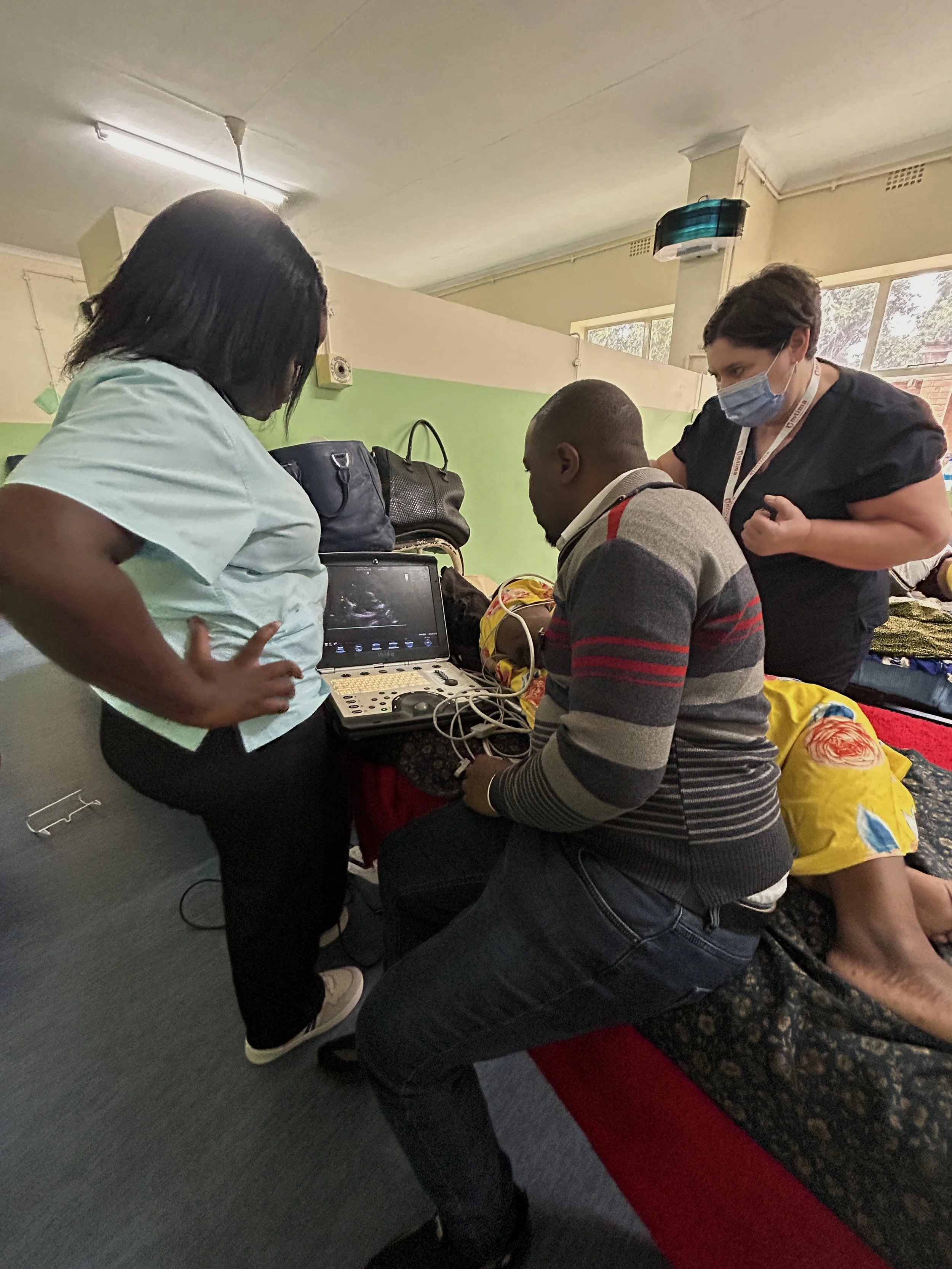Raising the Standard: MTIMA’s Practical Blueprint for Better Care in Malawi
In a crowded Blantyre ward, a nurse wheels a stretcher toward a bedside ultrasound. The screen flickers; a heart comes into view. The study is a TTE—transthoracic echocardiogram, a non-invasive ultrasound of the heart—and today it means the difference between guesswork and a plan. This is the terrain where MTIMA chooses to work: the everyday edge where training, tools, and time decide outcomes.
Malawi’s health system carries twin burdens—infectious disease that never truly sleeps and a rising tide of non-communicable illness, especially cardiovascular disease. In that crunch, standards aren’t a slogan; they’re survival. MTIMA (Medical Training Initiatives and Medical Aid) operates with a narrow focus and a wide intent: help build sustainable systems to educate, train, equip, and support Malawian providers so quality care holds on busy days, not just ideal ones.
MTIMA Volunteer, Kim Weir RDCS, providing Echocardiography training.
The center of gravity is cardiac care. Prevention and early detection are the cheapest lifesavers, so MTIMA backs education that sticks: how to read a blood pressure in context, when to suspect heart failure, how to escalate a possible acute coronary syndrome without losing hours to uncertainty. Echocardiography sits at the hinge. When sonographers can reliably acquire standard views and reports land with clear conclusions, patients stop bouncing between clinics and start moving toward treatment.
Donations help, but only when they are disciplined. MTIMA coordinates new, used, and refurbished diagnostic equipment from Canadian centers, and yes, personal protective equipment (PPE) too. The rule is simple: accept what can be maintained, not merely donated. A spare probe and a service plan matter more than a ribbon-cutting. A functioning wheelchair or stretcher that shortens the path to imaging may quietly save more lives than a machine that dazzles once and dies.
Names matter because work is personal. Physicians like Dr. David McCarty and Dr. Karim Taha have logged the miles and rolled up sleeves—performing echocardiograms, teaching technique, and sending supplies when they’re most needed. But the point isn’t heroics. It’s handover. Skills that live in Malawian hands, in Malawian hospitals, are the ones that last.
Education is the multiplier. MTIMA’s visiting teams teach for Tuesday—the actual clinic day—translating best practices into steps that fit local workflow and power realities. Workshops are paired with case reviews and simple reporting templates so lessons don’t evaporate. The question after every session is the same: did this change a decision? If the answer is no, the curriculum adjusts.
What changes on the ground?
Sharper scans, quicker calls. Clean echo acquisition and unambiguous reports mean fewer repeat studies and faster referrals.
Smoother pathways. Chest pain is triaged with clear thresholds for transfer; heart-failure patients leave with meds, follow-up, and counseling, not guesses.
Equipment that stays alive. Donations arrive with training and maintenance plans so “out of service” signs don’t become wallpaper.
Medical mission visits remain a bridge, not a crutch. They connect committed international clinicians with Malawian institutions, but the success metric isn’t the selfie at departure—it’s the ward moving faster a month later. Each visit seeds mentorships, tightens referral networks, and leaves behind protocols that make sense in the places they’re used.
The work is incremental by design. A steadier probe hand. A clearer report. A shorter queue. None of this makes headlines on its own. Together, it tilts a system toward reliability, which is another word for dignity. MTIMA’s bet is that competence compounds: teach well, equip wisely, protect what works, and the standard of care inches upward where it counts—at the bedside.




